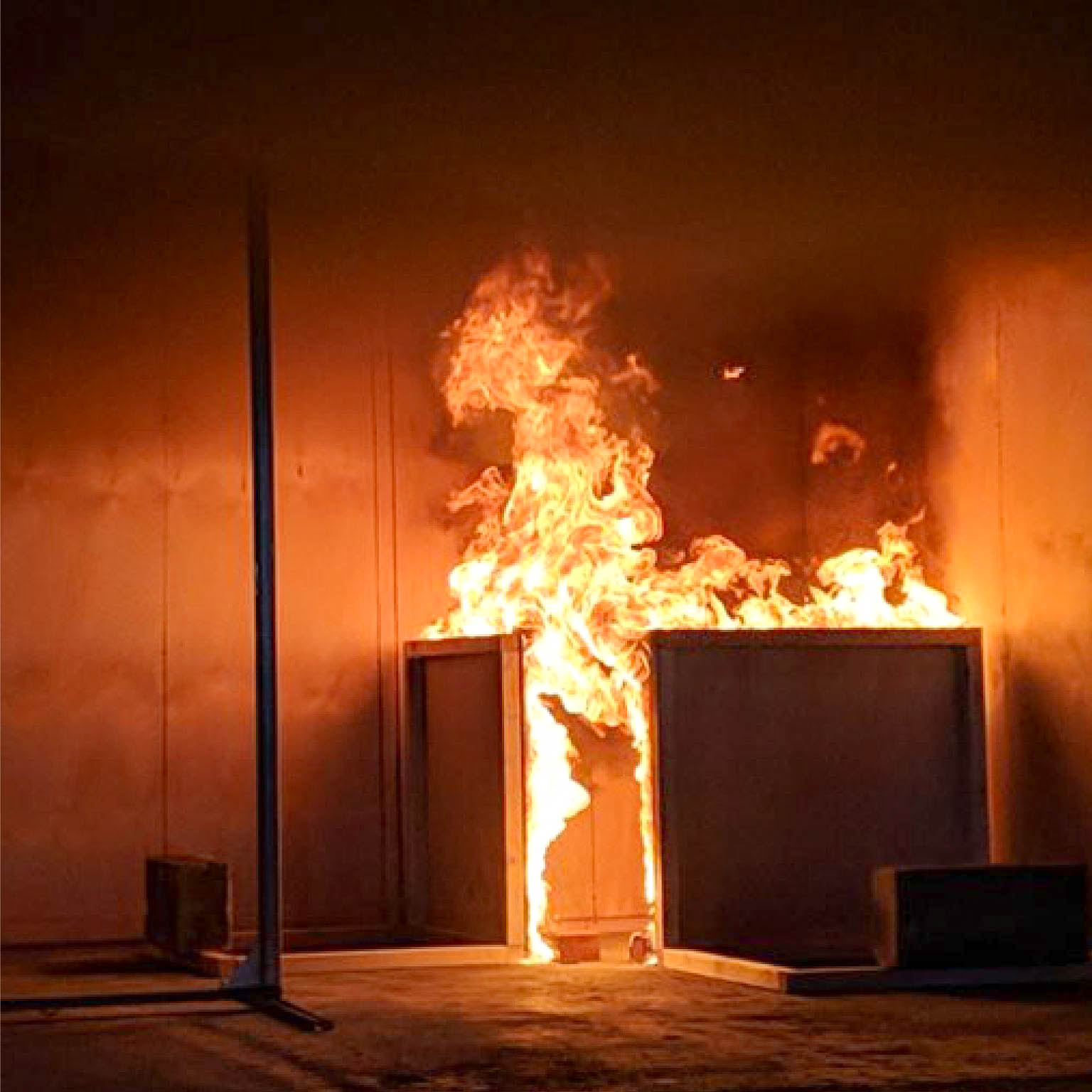IMist, one of the UK’s foremost suppliers of high pressure water mist fire suppression systems, has worked with leading industry body the Fire Protection Association (FPA), to help it gain UKAS accreditation for one of its fire testing laboratory facilities – becoming the first and only test facility in the UK to hold this accreditation.
The fast-growing Hull headquartered business, which has developed its own range of high pressure water mist fire suppression systems, assisted the FPA in gaining UKAS accreditation for its BS8458: 2015 Annex C fire testing in Blockley, Gloucestershire, which is one of the most comprehensive fire test and research operations in the UK. IMist provided the FPA with its proprietary pumps, pipework, hoses, clips and nozzles as well as the support of iMist’s experienced team.
The UKAS accreditation of the FPA’s BS 8458 Annex C fire testing marks another important milestone in the development of water mist systems in the UK.
Alex Pollard, operations director of iMist, comments: “For over 75 years, the FPA has been at the forefront of fire safety and we’re proud to have assisted them in achieving this respected third-party accreditation. It is a further demonstration of the growing importance of high-pressure water mist systems in tackling the current challenges facing the fire suppression sector. Not only do they use considerably less water than traditional sprinkler systems, they are also easier and faster to install and, thereby, more cost effective.”
As part of its ongoing R&D product testing programme, iMist has also undertaken a series of live fire testing at the FPA’s UKAS accredited laboratory which has increased the system’s applications, demonstrating that in addition to being installed in the cavity above the ceiling, the iMist system pipework can safely and effectively be installed below a plasterboard ceiling.
For the live fire tests, the iMist nozzle was fed by both flexible and solid pipework running below a standard plasterboard ceiling. In each of the tests, the fuel load was ignited and the heat from the fire caused the bulb in the nozzle to burst which activated the iMist high pressure watermist system, discharging the fine water mist particles at high pressure for 30 minutes. During this time, the temperatures at pre-determined heights in the test cell were measured by thermocouples. At no point during any of the tests were any of the Annex C temperature limits breached and all of the fires were successfully suppressed.
Timothy Andrews, iMist business development director, added: “While fire system pipework is usually installed in the cavity above a ceiling, in some properties, particularly in older tower blocks, there are frequently issues around the possible break-up of asbestos hidden in ceiling materials. Our latest indicative tests show that the housing industry can now explore another less disruptive and highly effective option by installing a water mist system below the existing ceiling. Given the growing need to retrospectively fit fire suppression systems in order to meet the latest regulatory requirements and bring older housing stock up to current standards, this is great news for both landlords and developers.”

